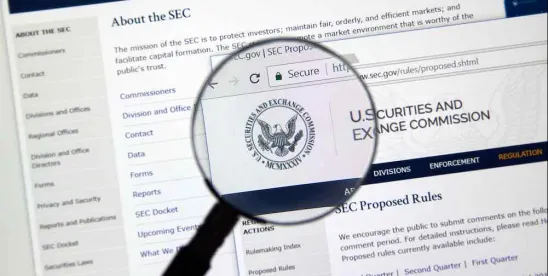On August 23, 2023, the U.S. Securities and Exchange Commission (“SEC”) adopted its highly anticipated new rules and amendments to existing rules under the Investment Advisers Act of 1940 (“Advisers Act”) impacting private fund advisers (“Private Fund Adviser Rules” or the “Rules”).[1] In a welcome development, the SEC confirmed in its Adopting Release that in most cases the Rules would not apply to advisers located outside of the U.S. (“offshore advisers”), but also clarified that certain provisions would apply in certain circumstances.
Please refer to our recent summary of the new Rules for more information. The Private Fund Adviser Rules include the following five new Rules:
- Quarterly Statement Rule
- Private Fund Audit Rule
- Adviser-Led Secondary Transaction Rule
- Restricted Activities Rule
- Preferential Treatment Rule
In addition to these new Rules, which are specific to private funds, the SEC also adopted amendments to the existing Compliance Rule for all registered investment advisers whether or not advising private funds.
Types of Advisers Exempt from the Private Fund Adviser Rules
In adopting the Private Fund Adviser Rules, the SEC provided an answer to an important question—what are the extraterritorial limits of the Rules as applied to non-U.S. advisers? The SEC clarified that the five new Private Fund Adviser Rules are much more limited in their application to an investment adviser that has its “principal office and place of business”[2] outside of the United States and thus is an “offshore adviser,” basing its reasoning on its long-held position “of not applying substantive provisions of the Advisers Act to SEC-registered offshore advisers with respect to their offshore clients, including private fund clients.”[3] Importantly, the SEC confirmed that this same principle applies to unregistered and exempt offshore advisers (including Exempt Reporting Advisers), and specifically clarified “the restricted activities rule and the preferential treatment rule do not apply to offshore unregistered advisers with respect to their offshore funds (regardless of whether the funds have U.S. investors).”[4]
The new Rules do, however, still apply to any U.S. domiciled private funds (e.g., Delaware limited partnership) managed by an offshore adviser even if the fund has no U.S. investors.[5] The following chart provides a basic overview of the types of private funds that fall within the scope of the new Rules:
| U.S. Adviser or Offshore Adviser? | SEC Registration Status of Adviser | Domicile of Private Fund |
Do the New Rules Apply? |
|---|---|---|---|
| U.S. Adviser | Registered | U.S. | Yes |
| U.S. Adviser | Registered | Offshore | Yes |
| U.S. Adviser | Unregistered/Exempt | U.S. | Yes |
| U.S. Adviser | Unregistered/Exempt | Offshore | Yes |
| Offshore Adviser | Registered | U.S. | Yes |
| Offshore Adviser | Registered | Offshore | No |
| Offshore Adviser | Unregistered/Exempt | U.S. | Yes |
| Offshore Adviser | Unregistered/Exempt | Offshore | No |
Offshore advisers that manage both U.S. domiciled funds (to which the Rules apply) and offshore funds (to which the Rules do not) – particularly within the same fund structure – should consider the extent to which the application of the new Rules to U.S. domiciled funds implicate considerations such as fairness, operational parity and the expectations of investors in the offshore vehicles.
The SEC’s discussion of the extraterritorial application of the new Rules is certainly a welcome relief for offshore advisers. However, offshore advisers must assess how the new Private Fund Adviser Rules will affect their business should they currently, or in the future, manage a U.S. domiciled private fund.
[1] Private Fund Advisers; Documentation of Registered Investment Adviser Compliance Reviews, Advisers Act Rel. No. 6383 (Aug. 23, 2023) (“Private Fund Adviser Rules Adopting Release”).
[2] “Principal Office and Place of Business” is an adviser’s executive office from which its officers, partners, or managers direct, control, and coordinate the activities of the firm. See Form ADV Instructions & Glossary.
[3] Private Fund Adviser Rules Adopting Release at 49. See also id. n. 126 citing Exemptions for Advisers to Venture Capital Funds, Private Fund Advisers With Less Than $150 Million in Assets Under Management, and Foreign Private Advisers, Rel. No. IA-3222 (June 22, 2011); Registration Under the Advisers Act of Certain Hedge Fund Advisers, Investment Advisers Act Rel. No. 2333 (Dec. 2, 2004); American Bar Association, SEC Staff No-Action Letter (Aug. 10, 2006).
[4] Private Fund Adviser Rules Adopting Release at 49.
[5] The amendments to the existing Compliance Rule apply to all registered U.S. and offshore advisers, however, regardless of where their private funds are domiciled (and indeed whether or not the registered adviser advises private funds at all).



 />i
/>i

